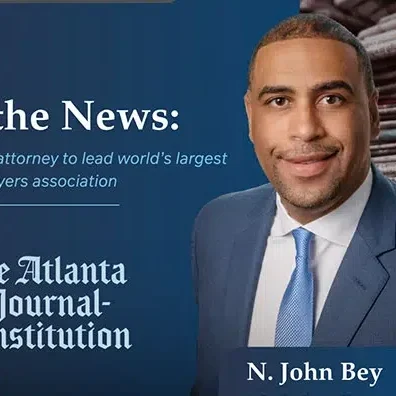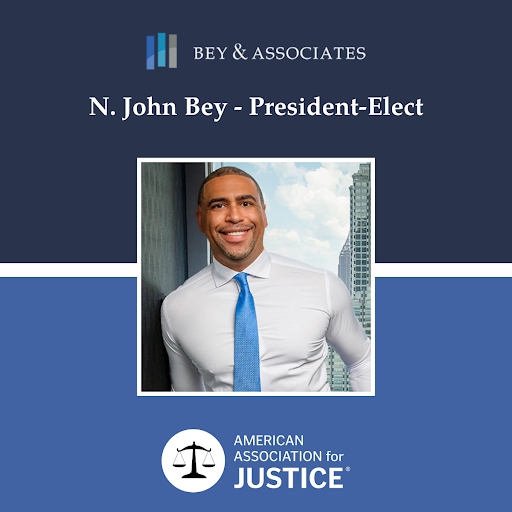Insurance Coverage and Limits: Maximizing Recovery in Truck Accident Claims
Picture this: you’re driving in Atlanta traffic when a giant truck swerves, causing a horrific crash. You’re hurt, your car’s mangled, and you have no clue how to move forward. Georgia truck accidents are brutal due to the size of these vehicles. But what about the financial burden? Understanding insurance coverage and limits becomes critical here.
An Atlanta truck accident lawyer can give you the knowledge needed to maximize your recovery after a Georgia truck accident.
Legal Requirements of a Commercial Truck Insurance in Georgia
Hitting the road in a commercial truck is a big responsibility. Not only are you navigating traffic, but you’re also carrying valuable cargo. That’s why commercial truck insurance is mandatory. Here’s a breakdown of the essentials:
- Bodily Injury Liability: This applies when you are responsible for an accident that harms another party. Bodily injury liability covers expenses for injured people in an accident, with a minimum of $25,000 per person and $50,000 per accident.
- Property Damage Liability: Let’s say your truck damages another vehicle, a building, or any other property in an accident. This coverage pays for repairs or replacements, with a minimum limit of $25,000.
While these are the legal minimums, unexpected accidents can lead to much higher costs. Consider increasing your coverage for peace of mind and to avoid paying out of pocket.
What’s The Minimum Insurance Needed For Commercial Trucks In Georgia?
The commercial truck insurance cost in Georgia may fluctuate depending on several elements, but let’s break it down based on key elements:
Truck Weight and Location
- Intrastate Trucks (Over 10,000 lbs): Most trucks fall into this category. Owner-operators typically pay between $8,500 and $14,000 annually.
Cargo Type
- Non-Hazardous Freight: This category’s average commercial box truck insurance starts at $750,000 in coverage, significantly higher than the state minimum of $100,000/$300,000 for liability.
Additional Considerations
- High-Risk Drivers: If the driver has a history of accidents or violations, it will increase your premium.
- Passenger Capacity: Trucks carrying over 12 passengers require higher coverage, often exceeding $500,000.
- Hazardous Materials: Hauling oil products bumps your minimum coverage recommendation to $1,000,000.
- Hazmat Transport: Trucks carrying hazardous materials require a minimum commercial auto policy of a whopping $5,000,000.
Remember, these are just averages. Talking to a qualified insurance agent can help you determine the specific cost based on your unique situation and risk profile.
Why General Liability Insurance is Crucial for Truckers
General Liability (GL) Insurance might seem like an afterthought for truckers focused on auto insurance. But trust us, it’s a lifesaver for unexpected situations. Here’s why:
Off-Road Protection: Auto insurance handles accidents on the road, but GL covers mishaps off the truck. Imagine a customer slipping and falling at your dispatch center – GL steps in to cover medical expenses.
Property Damage: If your business causes property damage, it falls under GL, too. Let’s say a delivery goes wrong and damages a customer’s property. GL would help cover the repair costs.
Protecting Your Reputation: Even a bad review can be considered an advertising injury. GL can help if a customer sues for slander or libel related to your business practices.
State Variations and Business Needs: GL requirements can differ by state, and your specific business risks play a role.
While not always mandatory, GL is an intelligent investment for truckers. It offers peace of mind and shields your business from unexpected financial blows.
What is the Graves Amendment?
The Graves Amendment is significant in truck accident lawsuits, specifically when holding rental companies liable. Here’s a breakdown:
- What it is: The Graves Amendment is a federal law that limits the ability to hold vehicle rental companies responsible for accidents caused by their customers.
- Who it Protects: This amendment protects rental companies, including truck rental companies, from lawsuits based solely on their owning or leasing the vehicle involved in the accident.
- Critical Conditions: There are two main conditions for the Graves Amendment to protect a rental company:
- In the Business of Renting: The company must primarily rent vehicles, not just an occasional sideline.
- No Negligence: The rental company cannot have been negligent in any way related to the accident. For instance, if they rented a truck with known safety issues, they might lose protection under the Amendment.
- Impact on Lawsuits: This amendment makes it harder for victims of truck accidents to hold rental companies liable. The focus shifts to the driver’s actions and their insurance coverage.
The Graves Amendment creates a complex legal landscape. If you’ve been in a truck accident involving a rented vehicle, consult an Atlanta truck accident lawyer familiar with this law.
Do You Need an Atlanta Truck Accident Lawyer?
The aftermath of a Georgia truck accident can be overwhelming.
That’s where Bey & Associates steps in. Our Atlanta truck accident lawyer can be your champion throughout the entire process:
Investigating the Cause: We meticulously examine the accident scene, gather evidence, and identify all potentially liable parties.
Fighting for Maximum Compensation: We understand the significant costs of truck accidents. We’ll fight tirelessly to ensure you receive total compensation.
Understanding Insurance Coverage: Our lawyers have the experience to navigate complex truck accident claim policies and maximize your recovery from available insurance sources.
Schedule a Free Consultation Today
Contact Bey & Associates today for a free consultation. We are here to hear your story, address your inquiries, and assist you in exploring your legal avenues. You are under no obligation and need to understand and assert your rights.



